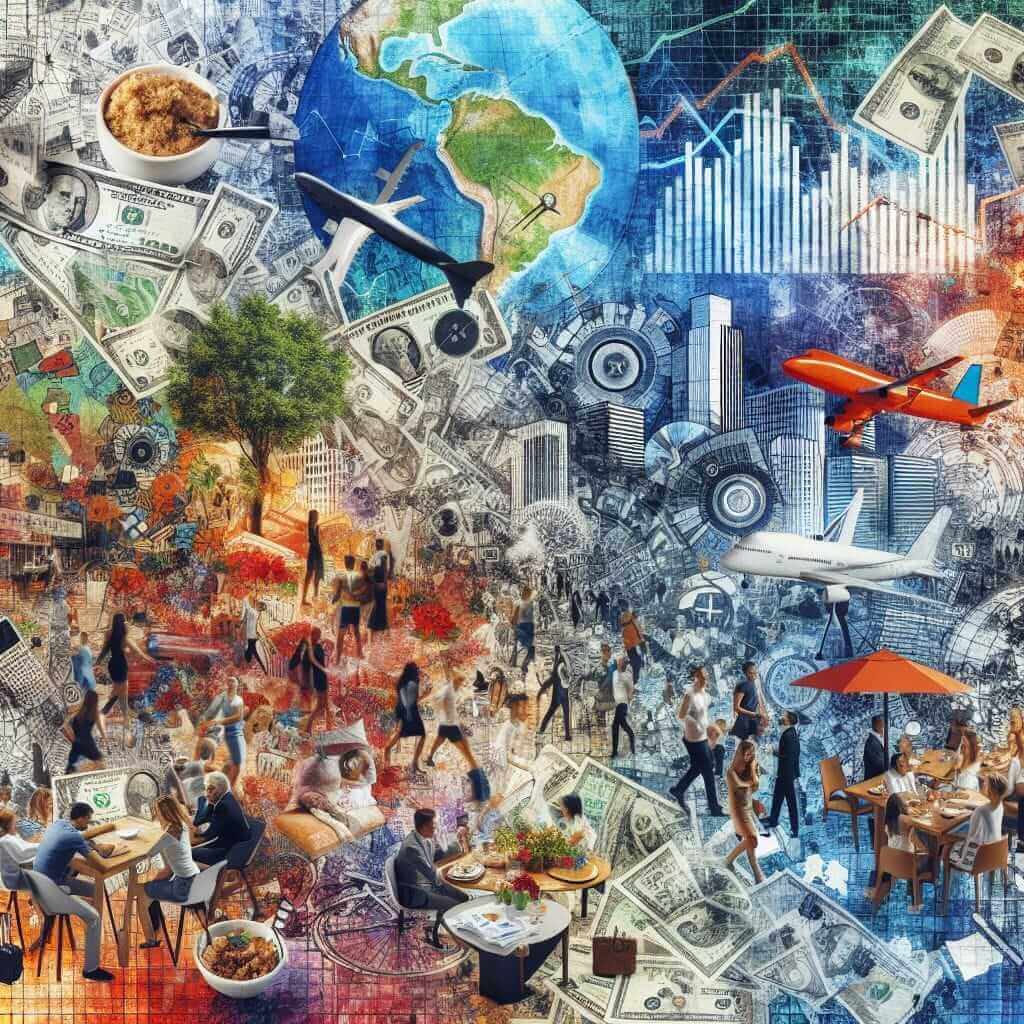As an IELTS instructor with over 20 years of experience, I often encounter students who underestimate the importance of understanding global issues, particularly within the realm of economics and society. One such topic that frequently appears in IELTS Speaking and Writing is the relationship between leisure and the economy. This isn’t just about knowing how to answer a specific question; it’s about demonstrating a broader understanding of the world we live in. So, let’s delve into this fascinating interplay and equip you with the knowledge and vocabulary to excel in your IELTS exam.
The Intertwined Nature of Leisure and the Economy
When we think of “leisure,” images of relaxation, hobbies, and vacations spring to mind. We often see it as separate from the “economy,” which conjures up thoughts of work, production, and finance. However, the reality is far more nuanced. Leisure and the economy are deeply interconnected, each influencing and shaping the other in significant ways.
How Leisure Fuels the Economy
- Job Creation and Industry Growth: The leisure and tourism industry is a massive global employer. Hotels, restaurants, airlines, entertainment venues, and countless other businesses thrive on people’s desire for leisure activities.
- Consumer Spending and Economic Stimulation: When people engage in leisure, they spend money. This spending fuels demand for goods and services, contributing directly to economic growth. Think about the last time you went on holiday; your expenses on flights, accommodation, meals, and entertainment all played a part in stimulating the economy.
- Investment and Infrastructure Development: Popular tourist destinations often see significant investment in infrastructure, such as transportation, accommodation, and recreational facilities. This not only enhances the leisure experience but also creates jobs and boosts local economies.
How the Economy Shapes Leisure
- Economic Prosperity and Leisure Affordability: A strong economy typically translates to higher disposable incomes, allowing people to spend more on leisure activities. Conversely, during economic downturns, leisure spending is often one of the first areas to be cut back.
- Working Hours and Leisure Time: The structure of the economy and labor market significantly influences the amount of leisure time people have. For instance, countries with shorter working hours often see a greater emphasis on leisure and work-life balance.
- Technological Advancements and Leisure Trends: Innovations in technology have profoundly impacted leisure activities. From online streaming services to virtual reality gaming, technology constantly creates new avenues for leisure and entertainment, influencing how people spend their free time and their money.

Applying Your Knowledge to IELTS
Now that you understand the interconnected nature of leisure and the economy, how can you utilize this knowledge effectively in your IELTS exam?
IELTS Speaking
Imagine being asked: “Do you think people spend too much money on leisure activities?” Armed with a deeper understanding, you can provide a more insightful response, acknowledging both sides of the argument. You could discuss the economic benefits of leisure spending while also recognizing the potential for overconsumption and its environmental impact. Using specific examples from your own country or experiences will further strengthen your response.
IELTS Writing Task 2
Consider this essay question: “Some people argue that governments should invest more in public parks and recreational facilities, while others believe that these funds should be directed towards other priorities. Discuss both views and give your own opinion.” By understanding the economic benefits of leisure and its impact on well-being, you can construct a well-rounded argument, highlighting the positive return on investment that such initiatives can bring.
Tips for Success
- Stay Informed: Regularly read articles, listen to podcasts, and watch documentaries on topics related to economics, society, and global trends. This will not only broaden your vocabulary but also provide you with contemporary examples to use in your responses.
- Think Critically: Don’t just accept information at face value. Question, analyze, and form your own opinions on the relationship between leisure and the economy. This critical thinking will be invaluable in crafting nuanced and insightful responses.
- Practice Makes Perfect: Regularly engage in IELTS speaking and writing practice, specifically targeting topics related to economics and societal issues. The more you practice, the more confident and fluent you’ll become in expressing your ideas.
Remember, IELTS is not just about demonstrating language proficiency; it’s about showcasing your ability to think critically and engage with complex issues. By developing a nuanced understanding of topics like the relationship between leisure and the economy, you’ll be well-equipped to excel in your exam and beyond.